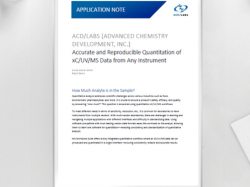Amisulpride reduces post-operative nausea and vomiting
Posted: 16 March 2018 | Dr Zara Kassam (European Pharmaceutical Review) | 1 comment
An innovative use of a known drug is showing promise as an effective treatment for preventing postoperative nausea and vomiting (PONV)….


An innovative use of a known drug is showing promise as an effective treatment for preventing postoperative nausea and vomiting (PONV).
The drug, amisulpride, showed a statistically significant reduction in the occurrence of PONV, when used intraoperatively in combination with a standard anti-nausea treatment, in the 24 hours after surgery in high-risk patients.
“Tens of millions of Americans undergo surgery each year and many suffer from nausea and vomiting after their operation,” said lead researcher Dr Peter Kranke, Professor of Anesthesiology at the University of Würzburg in Germany. “Post-operative nausea and vomiting contributes to patient distress, can delay recovery after surgery and increases hospital costs. Patients with multiple risk factors for PONV require a multimodal approach for its prevention, including using a combination of anti-nausea drugs with different mechanisms of action, since it cannot be predicted which pathway(s) will be active in a patient.”
Risk factors for PONV include being female, having a prior history of PONV or motion sickness, nonsmokers and those expected to use opioids after surgery for pain. Without effective preventive treatment, nausea and/or vomiting in the 24 hours after surgery may occur in 60 to 80 percent of patients with at least three of the recognised risk factors.
Currently, drugs from the serotonin 5-HT3 and corticosteroid classes are most commonly administered intraoperatively to prevent nausea and vomiting after surgery. However, “safe and effective anti-nausea drugs from other classes are needed to complement these,” Dr Kranke said.
Amisulpride works by blocking dopamine signalling in the body. Similar dopamine-blocking drugs were once previously used to prevent and control nausea and vomiting after surgery but are now avoided because irregular heart rhythms and drug-induced movement disorders occurred with their use. Amisulpride appears to be as effective as the previously used drugs in that class, but without the safety concerns, the authors note.
The study included 1,147 adult patients undergoing elective surgery under general anaesthesia, who had three or four PONV risk factors. Patients were randomly assigned to receive either 5 milligrams of amisulpride intravenously or a placebo at the beginning of receiving general anaesthesia, in addition to another anti-nausea drug.
Researchers found 58 percent of patients receiving amisulpride had a complete response — defined as no vomiting or need for fast-acting medication to relieve vomiting — in the 24 hours after surgery, compared with 47 percent of those receiving the placebo. Overall, vomiting (14 percent amisulpride vs. 20 percent placebo), any nausea (50 percent amisulpride vs. 58 percent placebo), significant nausea (37 percent amisulpride vs. 48 percent placebo), and those requiring fast-acting medication to relieve vomiting (41 percent amisulpride vs. 49 percent placebo) were significantly lower in the amisulpride group. Adverse events occurred no more frequently with amisulpride than with placebo.
The researchers concluded a low dose of intravenous amisulpride is safe and effective in preventing PONV when given in combination with an anti-nausea drug from another class to high-risk adult patients undergoing elective procedures. “This could enable improved control of PONV and allow for earlier mobilisation and discharge of surgical patients,” Dr Kranke said.
Amisulpride is currently under review by the US Food and Drug Administration. According to the authors, amisulpride has been used orally – in much larger doses than the intravenous dose used to prevent PONV in the current study – in European patients for 30 years to manage psychosis.
The study has been published in the Online First edition of Anesthesiology, and the medical journal of the American Society of Anesthesiologists (ASA).










Well Said: An innovative use of a known drug is showing promise as an effective treatment for preventing postoperative nausea and vomiting (PONV). Amisulpride has a global market of roughly $175M. Europe’s total consumption is $90 million/year and the EU5 over $57 million/year. Amisulpride is currently not being sold in Russia, Sweden, Finland and the Netherlands. Opportunities may very well be present in these 4 countries.